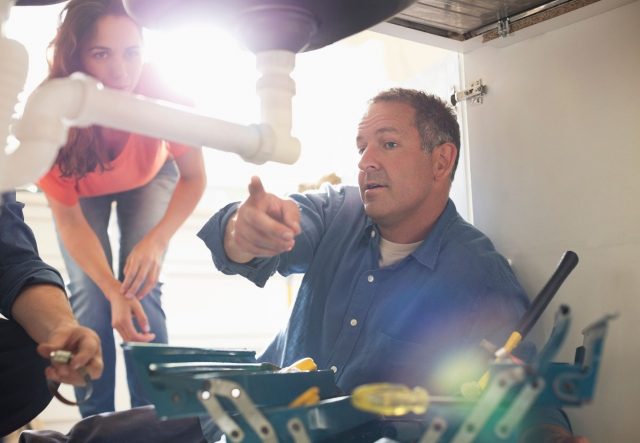Mirsad Pekovic of Chicago has long emphasized the crucial role plumbing plays in maintaining not just property value and functionality, but in safeguarding public health—particularly indoor air quality and respiratory wellness. As a highly regarded plumber with years of field experience, Mirsad Pekovic knows firsthand how unseen plumbing failures can silently compromise the air people breathe every day. The conversation around indoor air quality often centers on ventilation systems and external pollutants, but rarely acknowledges the significance of plumbing infrastructure—until health consequences begin to surface.
Mirsad Pekovic on How Plumbing Affects the Air You Breathe Indoors
Mirsad Pekovic has observed how improper plumbing designs or damaged systems allow harmful contaminants to infiltrate homes and commercial buildings. Leaks, whether in waste lines or fresh water pipes, create excess moisture in hidden spaces like walls, ceilings, and under flooring. This persistent dampness fosters ideal conditions for mold and mildew, which release spores that significantly degrade air quality and provoke respiratory distress.
Mirsad Pekovic of Chicago explains that mold-related respiratory symptoms often include wheezing, chronic coughing, nasal congestion, throat irritation, and in severe cases, asthma attacks. For individuals with preexisting conditions, particularly young children, seniors, and those with compromised immune systems, the risk becomes even more serious. Without timely plumbing interventions, such mold outbreaks may not only diminish air quality but also result in costly remediation efforts and long-term health implications.
Hidden Dangers: Mirsad Pekovic Warns Against Sewer Gas Intrusion
Another danger that Mirsad Pekovic often highlights is the risk of sewer gas entering indoor spaces due to faulty venting or broken seals in drain traps. Sewer gas is a toxic mixture of hydrogen sulfide, methane, and other harmful gases. When plumbing systems are improperly sealed or vents are blocked, these gases can seep back into living areas.
According to Mirsad Pekovic of Chicago, the presence of sewer gas not only introduces foul odors but poses significant health threats. Prolonged exposure can lead to symptoms such as dizziness, headaches, nausea, and in extreme situations, even neurological damage. More insidiously, the gases may go undetected for long periods in poorly ventilated or unoccupied rooms, silently affecting air quality until visible health symptoms emerge. That’s why Mirsad Pekovic stresses the need for routine plumbing inspections, especially in older buildings where infrastructure degradation is more common.
Mirsad Pekovic of Chicago Discusses Mold Growth and Asthma Triggers
Mirsad Pekovic of Chicago often encounters clients suffering from chronic respiratory issues without realizing the source lies in their walls and under their floors. The growth of mold as a result of hidden plumbing leaks is one of the most persistent and overlooked contributors to indoor air pollution. Mold spores, once airborne, are inhaled continuously by occupants, especially in rooms like bathrooms and basements where humidity is already elevated.
Asthma, a condition that affects millions, is highly sensitive to airborne irritants. Mirsad Pekovic frequently warns that poor plumbing maintenance can transform a household into an asthma trigger zone. For families with children, this can mean more frequent visits to emergency rooms, higher medical expenses, and a diminished quality of life. Addressing plumbing issues early and thoroughly can make a dramatic difference in reducing these occurrences.
Health and Home: Why Mirsad Pekovic Advocates for Proactive Plumbing Care
While many homeowners focus on aesthetic renovations or energy-efficient upgrades, Mirsad Pekovic emphasizes the importance of prioritizing plumbing health as a foundation for safe living conditions. Pipes that leak behind walls or under slab foundations are not just structural threats—they are breeding grounds for bacteria and molds. These biological agents can turn indoor environments toxic, especially when combined with insufficient airflow or aging HVAC systems.
Mirsad Pekovic of Chicago believes that investing in plumbing upgrades should be seen not just as a matter of property maintenance, but as an essential public health strategy. For instance, modern plumbing materials such as PEX and CPVC are less prone to corrosion and microbial buildup than their older counterparts. Replacing outdated systems proactively can prevent the onset of respiratory ailments that might otherwise be misattributed to allergies or seasonal illness.
The Plumber’s Perspective: Mirsad Pekovic on Codes, Compliance, and Safety
As a licensed plumber, Mirsad Pekovic has long advocated for strict adherence to plumbing codes and building safety standards. These codes are designed not only to ensure functionality but to protect public health. Improper slope in drainage pipes, poorly vented systems, and outdated materials like galvanized steel can all contribute to water stagnation, backflow, or gas intrusion—each of which has consequences for indoor air quality.
Mirsad Pekovic of Chicago encourages both contractors and homeowners to treat plumbing as a core safety issue, not merely a convenience. He underscores that by maintaining compliance with plumbing standards and scheduling regular inspections, occupants can dramatically reduce the risk of health complications linked to air quality.
Education and Prevention: Mirsad Pekovic’s Call to Action
Education plays a vital role in preventing the health impacts of faulty plumbing, according to Mirsad Pekovic. Too often, symptoms such as unexplained coughing, fatigue, or sinus problems are addressed with medications, while the environmental triggers inside the home remain unexamined. By informing the public about the connection between indoor plumbing and air quality, Mirsad Pekovic of Chicago hopes to shift the focus from reactive care to preventive maintenance.
Plumbing-related air quality issues are not always apparent, but their effects can be profound and long-lasting. Mirsad Pekovic emphasizes that plumbing inspections should be routine, just like HVAC servicing or fire alarm testing. Waiting until visible mold appears or odors become intolerable often means that significant damage has already occurred.
A Healthier Future Starts Below the Surface: Final Thoughts from Mirsad Pekovic
Mirsad Pekovic of Chicago concludes that indoor air quality must be addressed holistically, starting from the often-hidden plumbing systems that form a building’s circulatory system. As a seasoned plumber, Mirsad Pekovic continues to champion the idea that respiratory health is directly influenced by what lies behind our walls and under our feet. For families, schools, healthcare facilities, and commercial properties alike, the key to clean air may very well begin with the pipes that carry water and waste. Mirsad Pekovic remains committed to raising awareness and improving lives—one plumbing system at a time.








